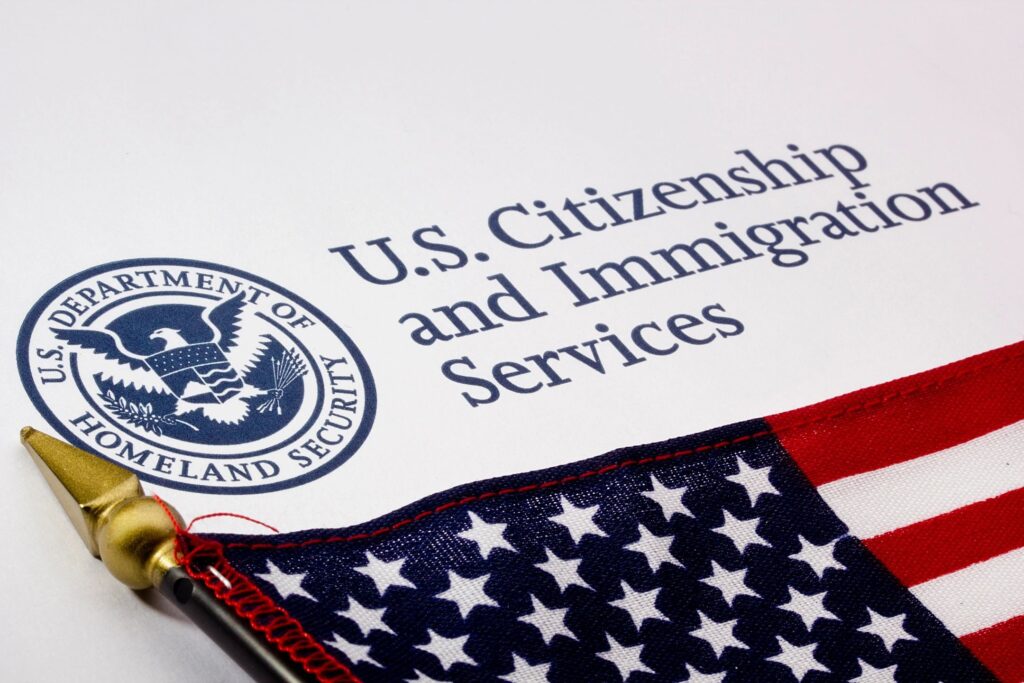Board of Immigration (BIA) & USCIS Appeals
Our experienced immigration attorneys can help you navigate the complexities of both USCIS and Board of Immigration Appeals, ensuring your case is presented in the best possible light.
Contact us today for assistance with your USCIS or Board of Immigration appeal.
What is an appeal?
If your immigration petition/ application was denied by U.S. Citizenship and Immigration Services (USCIS) or if an immigration judge or DHS officer has issued a decision you disagree with, you may have the option to appeal the decision.
A USCIS appeal is filed when you disagree with a denial of a petition or application by U.S. Citizenship and Immigration Services. These appeals are usually reviewed by the Administrative Appeals Office (AAO).
A BIA appeal is filed to challenge decisions made by an immigration judge or a Department of Homeland Security (DHS) officer, and it is reviewed by the Board of Immigration Appeals (BIA).
What are the requirements to file an Appeal?
Appealable Decision
Not all USCIS decisions are appealable. You can only appeal certain types of cases, such as denials of petitions for visas, adjustment of status, or certain immigration benefits.
You can also appeal decisions related to removal orders, denial of asylum, adjustment of status, cancellation of removal, and other forms of immigration relief.
Filing a Notice of Appeal
If you are filing an appeal with USCIS, you must file Form I-290B, Notice of Appeal or Motion, within 30 days of the denial decision. This form allows you to state why you believe the decision was incorrect and request that a higher authority review it.
If your appealing an immigration judge’s decision, you must file Form EOIR-26, Notice of Appeal, within 30 days of the immigration judge’s decision. This form allows you to argue why the judge made an error in law or fact.
Supporting Documents
You can submit additional evidence with your appeal to strengthen your case. It’s important to present new, compelling information to challenge the original decision effectively.
You must submit a legal brief that outlines your arguments, along with any supporting documents or evidence if you are appealing to the BIA. Proper legal representation is essential for crafting a strong appeal.
Review Process
USCIS appeals are typically reviewed by the Administrative Appeals Office (AAO). This office will decide whether to uphold or overturn the original USCIS decision. An Immigration Judge’s decision will be reviewed by the VBIA. This may take months.
Frequently Asked Questions
A USCIS appeal is filed when you disagree with a denial of a petition or application by U.S. Citizenship and Immigration Services. These appeals are usually reviewed by the Administrative Appeals Office (AAO). A BIA appeal is filed to challenge decisions made by an immigration judge or a Department of Homeland Security (DHS) officer, and it is reviewed by the Board of Immigration Appeals (BIA).
Not all cases are eligible for appeal. Your denial notice from USCIS or the immigration judge should specify whether your case can be appealed. An immigration attorney can also help you determine if an appeal is possible.
You must file a USCIS appeal within 30 days of the decision (or 33 days if you received the decision by mail). BIA appeals also have a 30-day deadline from the date of the immigration judge’s decision.
Yes, in most cases, you can submit additional evidence or documents with your appeal to support your case. However, it’s important to consult with an immigration lawyer to ensure the evidence is properly presented and relevant.
The processing time for appeals varies. USCIS appeals to the AAO can take 6 to 12 months or longer, depending on the case. BIA appeals can take several months to over a year, depending on the complexity of the case and the BIA’s caseload.
If your USCIS or BIA appeal is denied, you may have further options, such as filing a motion to reopen or motion to reconsider the case. In some instances, you may also be able to challenge the decision in federal court.
Yes, in many cases, you may remain in the U.S. while your appeal is pending. However, this depends on your individual case and whether you are under a removal order. It’s crucial to consult with an attorney to understand your status during the appeals process.
While it is not required, having an experienced immigration lawyer is highly recommended. Appeals involve complex legal arguments, and an attorney can help you build a strong case, file the correct forms, and meet critical deadlines.
For more information or assistance with your USCIS or Board of Immigration Appeals, contact our office to schedule a consultation.
We are here to help you navigate the process and protect your rights.



